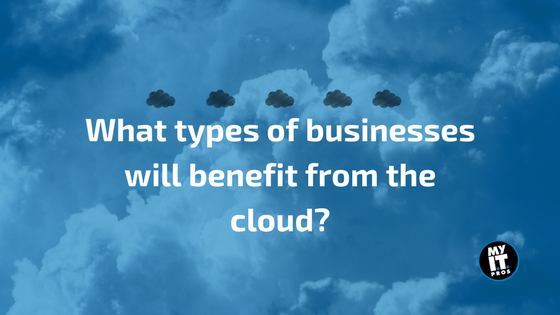
We’re frequently told that the cloud is the solution for all business needs, from communication to data storage to application development. It’s as if the very act of moving to the cloud will solve each and every one of your tech issues like some sort of digital snake oil.
However, this one-size-fits-all idea often fails to account for the nuances of specific industries. After all, there are reasons behind the fact that many fields have been slow to adopt cloud services—and they have nothing to do with Luddism. For instance, day traders and health care practitioners may not have the freedom to move client records over to public cloud storage. Additionally, a business relying on legacy software will face a much trickier cloud integration process than an enterprise with a more modern setup. All things considered, there are a lot of factors to take into consideration beyond technical finesse.
That said, advances in cloud computing are making integration easier and safer—even for previously passed-over industries. New models like multi-cloud and hybrid cloud environments reduce the likelihood of a security breach, while the speed and convenience of cloud storage and applications can work wonders for companies saddled with complicated legacy software. So, what types of businesses stand to benefit the most from cloud adoption?
Companies that advertise responsiveness, speed or agility as a main selling point
Use cases: Tech startups, corporations
Cloud integration for tech startups is pretty much a no-brainer, as the cloud facilitates rapid deployment of new servers and separate environments for testing, staging and release. A fast pace is especially critical for new startups that offer the major competitive advantages of speed and agility. Cloud technology also allows companies to quickly scale up or down—a great asset for fledgling businesses with unpredictable futures.
Meanwhile, large corporations face uncertainties of their own. Shrinking and expanding business cycles and continual industry “disruption” require them to stay current in order to thrive, and cloud hosting offers that kind of flexibility. Although many large corporations have resisted hosting proprietary applications on the cloud and ascribed to the “if it ain’t broke” philosophy, new distributed cloud infrastructures remove adoption barriers by spreading assets across multiple resources and safeguarding against server malfunctions.
Heavily regulated businesses
Use cases: Healthcare and financial organizations
Industries that must follow strenuous regulations have been understandably slow to move over to the cloud, as public cloud hosting puts sensitive information at a higher risk of exposure and leaks. Moreover, clinics and health care offices may feel hamstrung by HIPAA requirements that make total compliance seem harder.
However, health care organizations must also be sufficiently responsive and adaptive to cope with shifting industry regulations—and again, agility is one of the cloud’s main selling points. Private or hybrid cloud adoption allows for more flexible administration and instant access to client records, and thanks to the growing popularity of SaaS software, expensive and difficult-to-update enterprise software may soon become a thing of the past.
Businesses that depend on analytics and real-time reporting
Use cases: Marketing groups, sales teams, web developers, stock market traders
Big data is driving insights in multiple fields, particularly in the worlds of marketing, sales, development and finance. For marketers, cloud platforms allow data aggregation from multiple sources—such as web, social and a range of devices—without latency or a hefty financial overhead. Meanwhile, for developers and financial organizations, the cloud offers up-to-the-minute reporting and notifications. This kind of real-time data gives stock traders a serious edge over their competition, since fortunes on Wall Street are made and lost in the blink of an eye.
Older, on-premise analytical models for this kind of work typically relied on very tedious processes, and workers often had to resort to outdated methods such as printouts and manual spreadsheet entry to share data back and forth. In contrast, cloud application integration facilitates communication and collaboration between all stakeholders, thereby ensuring that reports and analytics aren’t duplicated or outdated.
Anyone with remote staff or multiple locations
Use cases: Global workforces, remote teams
On-site servers can be costly to maintain under the best of circumstances, and those expenses multiply when you have numerous office branches or jobsites. Businesses must pay not just for hardware but also for physical space to house the machines, and communication and document-sharing between multiple workplaces is clumsy and ineffective in the absence of the cloud. Using cloud-based solutions makes it easier for workers to access tools and information remotely, without fickle or slow VPN logins. All in all, the cloud is a big win for productivity—no matter where you hang your hat.
Visit MyITpros services pages for more information around our cloud offerings, or head over to the resources section to check out our informational cloud offerings!




